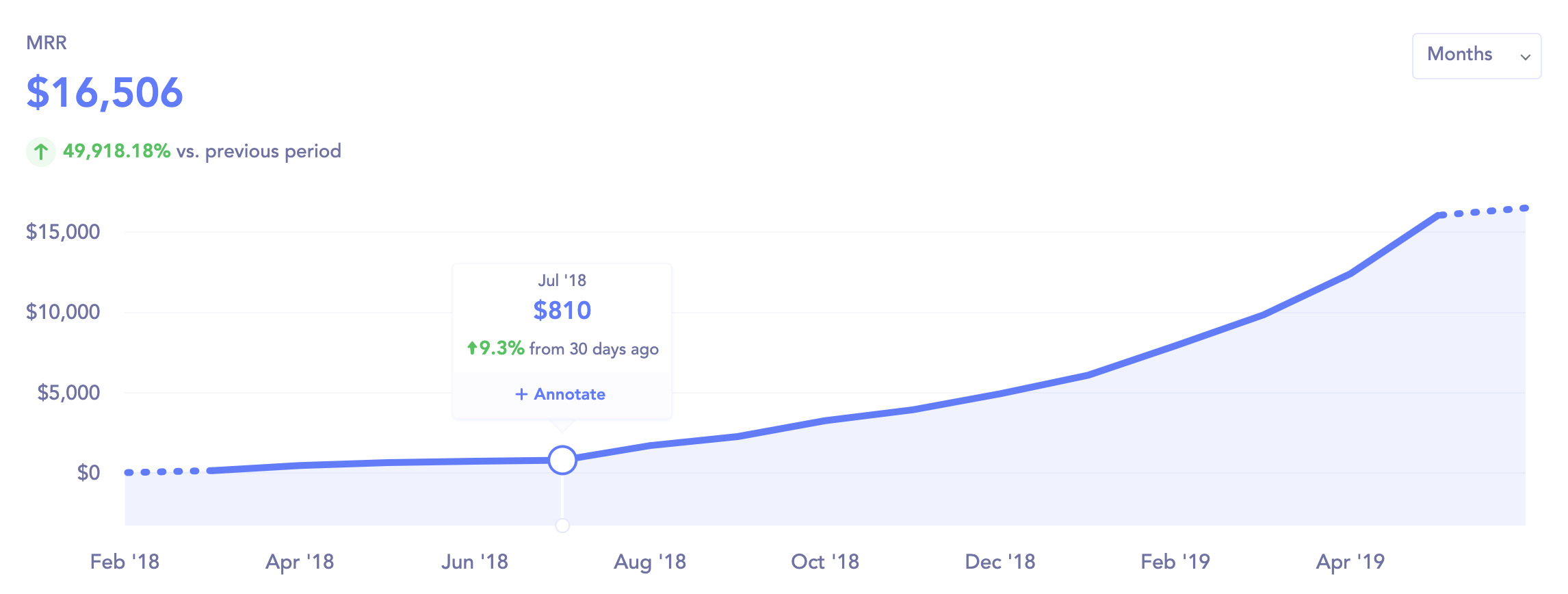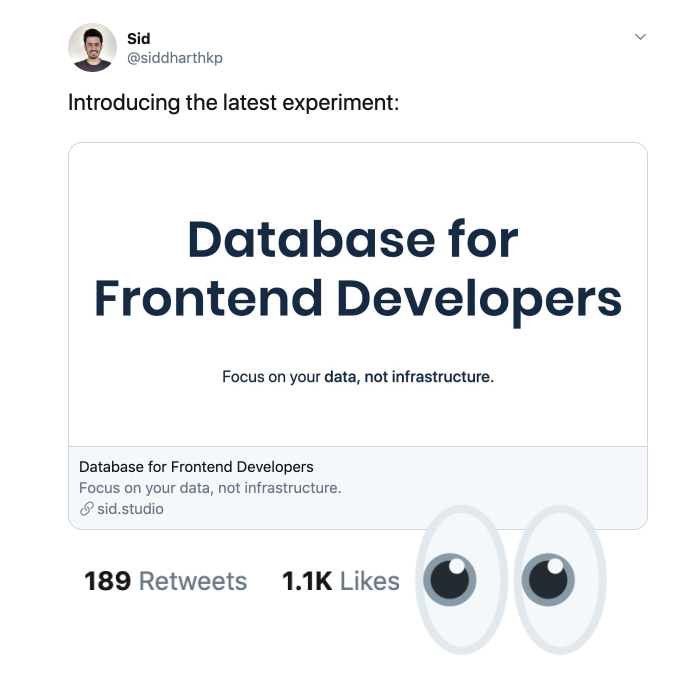This isn’t a post about React or javascript or CSS. It’s totally cool if you want to skip this one and come back next week :)
It’s been a weird week for me 😅
I just launched a new project yesterday and it was received really well but that didn’t really help.
What’s the project? It’s a database service built with frontend developers in mind.
Watch the video to see the developer experience I’m aiming for.
The question I’m asking myself is:
Will it scale?
The answer depends on what scale means to you.
Netflix streams more than 250 million hours of video per day, if that’s the scale we’re talking about, then probably not.
Scale can mean different things for different people. It could mean supporting 1M users, it could mean reaching enough users to raise funding, it could also mean having 10 happy customers.
Have you ever rejected an idea because it wouldn’t scale to somebody else’s definition of scale?
For me, scale means having enough users (and money) to keep working on this.
This can be copy pasted to other areas of your life as well - career, hobbies, relationships.
I play football once every week. I’m never going to be good enough to play in the World Cup. My “football career” will not scale, but does that mean I should give up playing the sport.
It takes time to scale
Here’s where it gets tough - when you start something, it won’t be worth your time for a really long time.
Asking if it will scale is the fastest way to kill an idea.
Mailchimp was a side-project for 6 years. It took Converkit 2 years before it even started becoming the company we know today.
I have been following the journey of Transistor and they are in great shape now. But look at the first 5 months before things started to pick up 😰

If the founders (Justin and Jon) gave up in those early months, they would have walked away from the life they want.
I’ve read enough articles and heard enough podcasts to know that patience is the name of the game, but it’s really hard to internalize that.
Here’s one of the reasons, we treat every project like it’s our life’s work, every job as if it’s our last. We put a lot of pressure for success on new fragile ideas. Which is silly because our careers are really long and there are plenty of projects that will come and go in the future.
Even if your project “fails”, it will teach you lessons that increase your chances for the next one.
Claude Monet, the famous French painter from the 18th century used to burn most of his finished paintings because he knew the next one he makes would be better.
Stay in the game
To get your goal, you have to stay in the game long enough.
To get to that amazing next job, you might have to stay at your boring job a little longer to rack up experience points.
To keep your ahead above water while your new project “scales”, you might have to do work that you don’t want to - like taking on freelance clients or keeping your day job while you work on your project on the side.
That’s not how traditional companies are built, but, in this new bootstrapped maker world, there are no rules.
Don’t play to win by somebody else’s rules. Play, so that you can keep playing by your own rules.
Hope this was useful on your journey!
Sid
